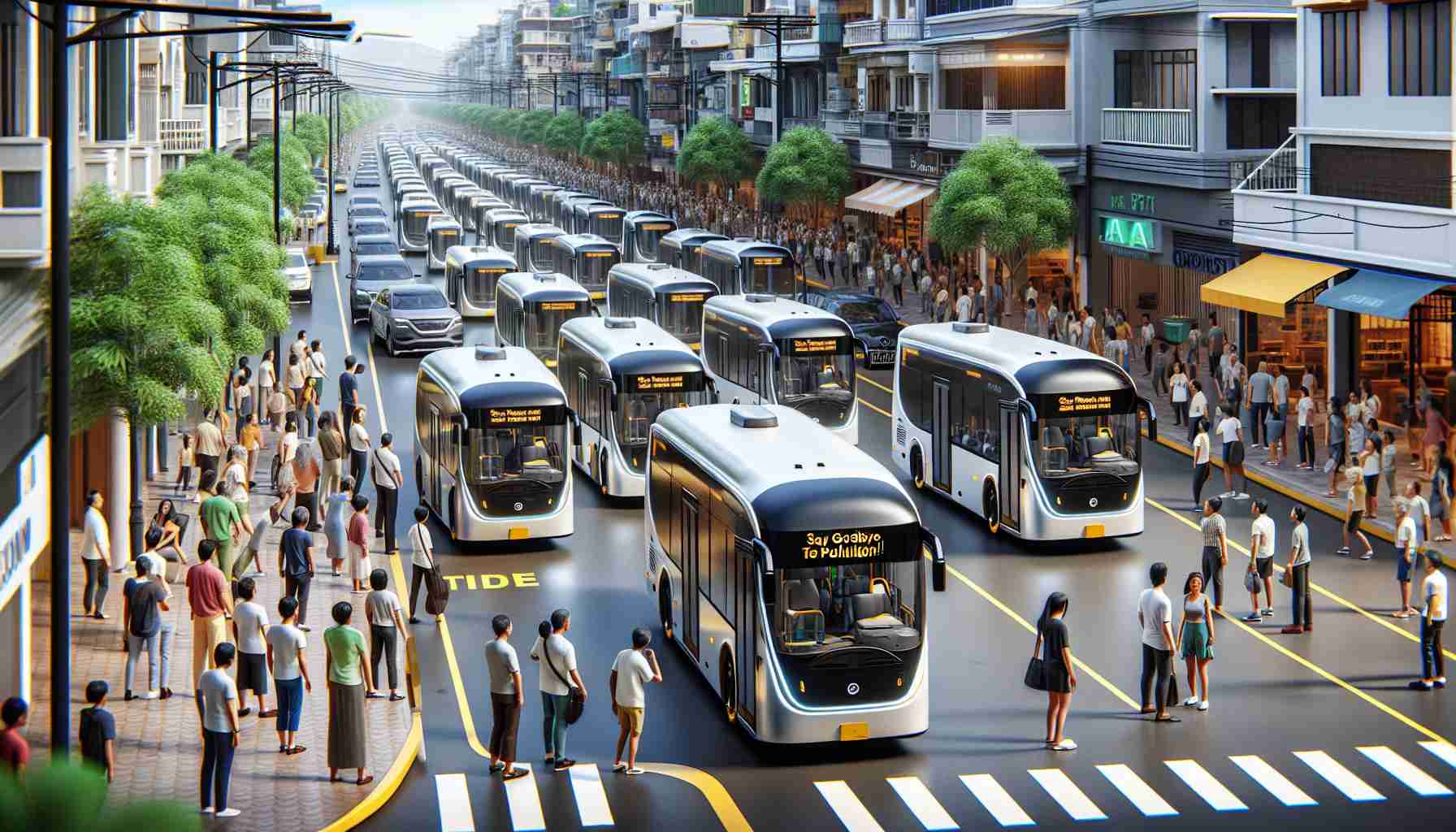
QUEZON CITY LEADS THE GREEN REVOLUTION
In a groundbreaking initiative to uplift urban transit and enhance environmental well-being, Quezon City Mayor Joy Belmonte has introduced a fleet of six modern electric buses. This pilot program is a vital addition to the city’s ongoing free transport services, highlighting a strong commitment to combat air pollution.
The innovative Electric Q City Bus serves as an eco-friendly alternative for commuters, operating on Route 1 from Quezon City Hall to Cubao. With a seating capacity for 41 passengers and additional space for standing travelers, these buses promise a comfortable journey while prioritizing sustainability.
Equipped with features such as wheelchair ramps and comprehensive safety protocols including fire suppression systems, the buses ensure accessibility and security for all passengers. Closed-circuit television cameras and smart TV screens offer enhanced safety and real-time information, creating a seamless travel experience.
The introduction of these electric buses aligns with national efforts under the Electric Vehicle Industry Development Act, which aims to have a certain percentage of government vehicles run on electricity. With air quality deteriorating, especially during festive seasons, this move represents a proactive response to the pressing need for cleaner air.
As Quezon City progresses, plans to expand the electric fleet are already on the horizon, reinforcing the city’s commitment to creating a sustainable urban transport network and setting a benchmark for others to follow in the fight against pollution.
Quezon City Drives Sustainable Transit with Electric Bus Initiative
Quezon City Leads the Green Revolution
In a bold and environmentally-conscious move, Quezon City has embarked on a groundbreaking initiative revitalizing urban transport while addressing the crucial issue of air pollution. Under the leadership of Mayor Joy Belmonte, the city has launched a fleet of six state-of-the-art electric buses, a significant expansion of its free transport services aimed at creating a greener future.
Key Features of the Electric Q City Bus
The newly introduced Electric Q City Bus operates on Route 1, connecting Quezon City Hall to Cubao. This eco-friendly mode of transport is designed to accommodate up to 41 passengers, with added standing room, making it an accessible choice for commuters.
Innovative Safety and Accessibility Features:
– Wheelchair Ramps: Ensuring accessibility for all individuals.
– Advanced Safety Protocols: Including fire suppression systems for passenger safety.
– CCTV Cameras: Enhancing security during transit.
– Smart TV Screens: Providing real-time information, improving the overall travel experience.
These buses are not just environmentally friendly—they prioritize passenger comfort and safety through modern technology and thoughtful design.
Legislative Support
The initiative complements the national objectives set forth in the Electric Vehicle Industry Development Act, which mandates a shift toward electric-powered government vehicles. This law aims to improve urban air quality, especially critical during high-traffic periods like festive seasons, where pollution levels tend to spike.
Expansion Plans and Future Goals
As part of its commitment to sustainable urban transport, Quezon City plans to expand its electric bus fleet in the near future. This expansion underscores not only the city’s dedication to pollution reduction but also its ambition to set a precedent for other urban areas in the Philippines to follow.
Insights and Trends
– Sustainability in Urban Transit: Electric buses represent a growing trend in urban mobility, which aligns with global efforts to reduce carbon footprints.
– Community Response: The integration of electric buses could positively influence public transit usage, given that commuters often favor environmentally friendly options.
– Innovations in Public Transport: Technology integration in transit systems enhances the user experience, making commuting safer and more appealing.
Pros and Cons of Electric Buses
Pros:
– Reduced greenhouse gas emissions.
– Lower operational costs compared to diesel buses.
– Quieter operation leading to reduced noise pollution.
Cons:
– Higher initial costs for purchasing electric buses.
– Charging infrastructure and maintenance requirements.
Market Analysis and Predictions
With the increasing awareness around climate change and air quality improvement, the electric bus market is anticipated to expand rapidly. Government incentives and public-private partnerships could further accelerate the adoption of electric vehicles in urban settings, offering a glimpse into a sustainable transit future.
In conclusion, Quezon City’s initiative not only aims to transform local transit but also serves as a model for cities worldwide striving for ecological sustainability. As cities evolve and adapt to newer technologies and cleaner modes of transportation, initiatives like these will define the future of urban commuting, emphasizing the importance of sustainable choices in public transit.
For more information about sustainable initiatives and urban development, visit Quezon City Government.



